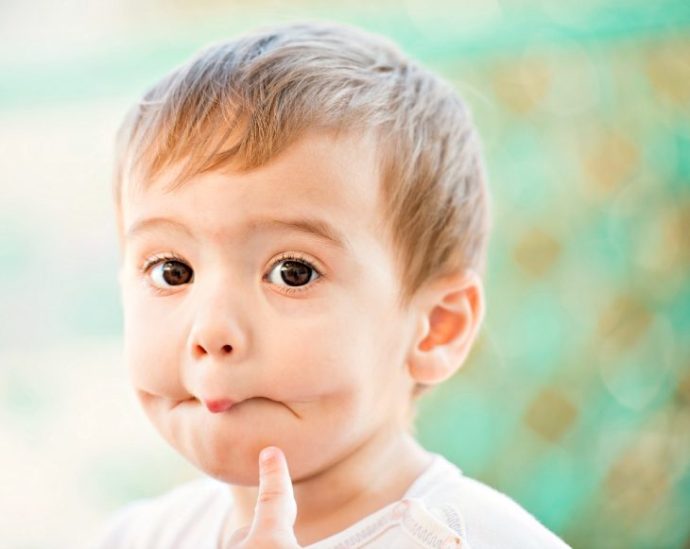Seeing your child studying in the 5th grade, all sorry and off after getting back from the school is an unusual sight for all the parents but it might just be the first symptom of an underlying issue that your child might be going through. Teaching the kids the right things to do is a responsibility of the parents and at the same time, understanding their problems from their perspective is a vital part of parenthood. If you find your school going child behaving differently all of a sudden, it might be due to being rejected from a clique or due to the pressure of keeping up to the rules of a clique.
If you are not clear about what a clique is or how it is different from a group of friends, here is some information for your knowledge which will certainly help you to understand the problem of your child better.
What is a clique?
A clique is a group of children who do everything together according to the rules of the clique set by the leader of the group. The children in a clique might or might not have similar interest, but they are forced to do the same things in order to be within the group. Cliques are not a spontaneous association of kids of similar age; rather cliques are tightly controlled by the leader. The members of a clique are not permitted to hang out or even talk with anyone they want to and are often forced to do things the way the leader of the clique wants.
The members of a clique blindly follow the rules set by the leader and the rules can involve just everything, starting from wearing the same dress, eating the same lunch to stealing or lying to the parents. The impacts of being in a clique or being rejected from a clique both can be harmful for your child. In a group of friends, usually the members share similar interests and are free to act according to their own will, but kids lose their freedom to be spontaneous when they are a part of a clique.
Cliques are most common in the junior and middle high school. It can also be seen amongst children of 4th-5th grade as well as amongst the teenagers.
The ill effects of clique on a child
A clique can affect a child negatively in two ways. Friendship plays an important part in the growing up of children and losing friends because the others are a part of a clique can actually make your child feel rejected and devastated. On the other hand, if your child is a part of a clique, it might be actually taking a toll on her spontaneous habits and feelings to stick to the strict rules of the clique, but she might be following them forcefully only because of the fear of rejection.
Parents can do a lot when it comes to helping children in coping with cliques. Here are some suggestions that can actually help the parents to deal with such situations,
Respect the feelings of your child
If your child is a member of a clique it is only usual because children always want to be a part of a group and no one actually likes to feel left out. So, if you find that your child is a part of a clique, instead of ridiculing or forcing your child to come out of the clique it is best to understand his emotion and needs.
Help your child to feel confident
Often children become a part of the clique or feel sad on being excluded from a clique because they do not feel confident all by themselves. You need to teach your child that she can do everything on her own and she has the best abilities that can help her achieve what she wants, without the help of anyone. Once the child is more confident about her own abilities, she is less likely to be affected by her relationship with a clique.
Encourage your child to be a part of many groups
One of the most effective ways to help your child cope with cliques is to encourage her to be a part of more than one peer groups. Instead of being in a single group in the school, make sure that she is a part of many groups of children. He should have friends in school, in the neighborhood, in after-school activity center as well as amongst the kids of your family friends. Being a part of more than one group is one of the best ways to help your child cope with cliques as it will take away the fear of rejection from her mind as she will know that even if she happens to lose one group, there are others to play with.
Give your child the right teaching
Teach your child to be polite, helpful, kind and honest to all her friends. This will not only help her to get more friends but will also help her to understand why she should not be a part of a clique that bullies other kids. Instead of forcing your son or daughter to stay away from a clique that might affect his/her character negatively, teach your child the way he should behave with others, so that he is not affected by the teachings he might be getting at the clique and will slowly start to understand the differences and start maintaining a distance on his own.
Encourage your child to be inclusive
Being picky is never a good way to have a healthy childhood. Teach your child to be more inclusive. She should not restrict her friends amongst a selected few rather she must be encouraged to have all as friends. Teaching your child to be friend with the girl who seems to have no friends or left out can actually be the best way to cope with cliques.
Do not indulge in every demand of your child
If your child asks for things, like the “right” dress, shoe or an elaborate birthday party just to keep up with the rules of her clique, you should not be giving in to her demands. If your child is a part of a clique, she might actually demand for things as asked by her clique leader just to ensure her acceptance in the group. Filling the needs of your child is your responsibility but being driven by every unnecessary demand of your child is certainly not the right way of parenting as that is sure to have a negative impact on her in the long run.
Teach your child to value her likes
In a clique, children are forced to like what the leader perceives as likable. Teach your child that what she likes is more important than what others in her group might or might not like. Once she starts valuing her own likes and choices, she is most expected to come out of the clique on her own, without any regrets or feeling left out.
Speak up and stand out
It is important that you teach your child to speak up and stand out for themselves as well as others in the clique. Listening to the leader without caring about anything else is certainly not how the things work. Teach your child that if there is something happening in the clique that she does not like, she must stand against it without the fear of being rejected.
Talk about your own experience
Children can naturally relate to the childhood stories of their parents. So, if you think that your child has been a part of a clique or she has been rejected by a clique which is taking a toll on her psychological health, sharing your own childhood experience about cliques can be one of the best ways to make her feel better and to make her understand that nothing in life actually change if she is not a part of a clique.
Spend more time with your child
If your child is trying to come out of a clique or has been casted out by a clique, in both the cases it is expected that she will be feeling psychologically vulnerable at the moment. Spending more quality time with your child during this phase can be most helpful to make her feel secured. Let her know that you are always there to share her thoughts and to be a partner in her crimes.
Talk with a specialist
If things seem to go out of hand and your child is not able to cope with the problem, it is best to talk with a specialist. A teacher can also be helpful to make sure that your child is not getting bullied by a clique. You can also talk with a specialist to better understand the needs of your growing child so that you can provide her with better support to deal with these types of problems in life.





